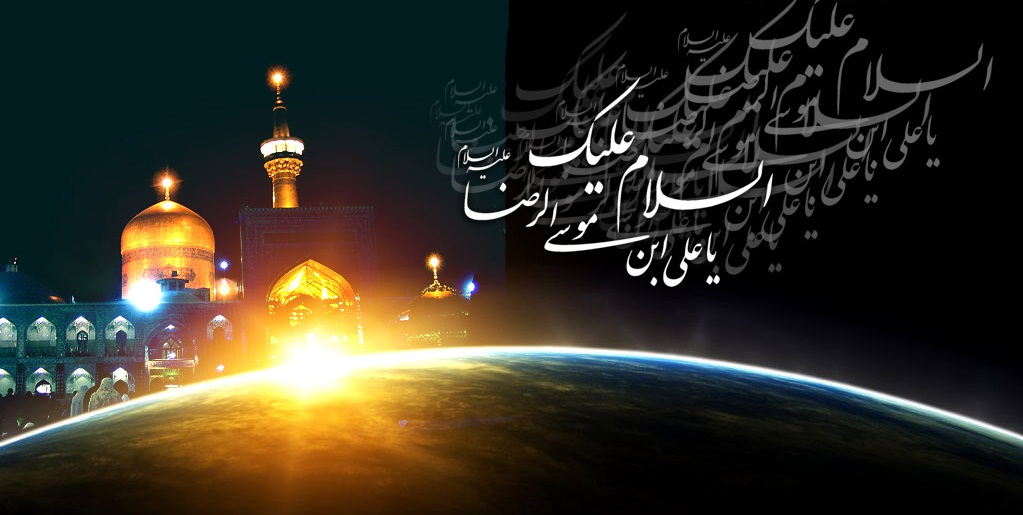This article is a brief look at Imam Al-Ridha’s Sermon on Divine Unity. Actually it deals with the first important Islamic principle (monotheism) in accordance with the Imam’s sermon in this regard. Based on the very importance of this fundamental principle, Imam Al-Ridha (S) has tried his best to explain and clarify this principle for Moslems. Therefore it is one of the best clarifications and expressions, that has been made by Imam Al-Ridha (A) in his well-known sermon on unity of God. In This very transcendental exposition of God’s unity The Holy Imam denies any attributes of God, because according to him, God is the creator not creature and everything that is created presumes that it has a Creator which is neither an attribute nor does it possess any attributes.

The first and the most fundamental principle of Islam is the “oneness of God”, as the two other main principles (prophethood and resurrection) are to some extent, a direct consequence of it. That is to say, without believing in divine unity, one cannot believe in the prophecy of any apostles of God, and in the Day of Judgment. Therefore, the Holy Prophet Mohammad (S) in his first address to the people, asked them to acknowledge the first Islamic principle (unity of God) by declaring, “There is no god except Allah", in order to be saved.
Hence, a Moslem first of all proves the existence of one God through its strong and convincing arguments, then based on that, he accepts God’s noble prophets and follow them in order to be guided in the right path. Logically, whenever God sent his prophets to the human beings and the prophets declared his message to the mankind, then He could judge them, punish them for all their sins, reward them for their obedience. Through this process the necessity and existence of the Day of Judgment will be justified.
Based on the very importance of this fundamental principle, all of the Imams and successors of the Holy Prophet Mohammad (S) have tried their best to explain and clarify this principle for Moslems throughout the Islamic history. One of the best clarifications and expressions in this regard was made by Imam Al-Ridha (A) in his well-known sermon on unity of God. Actually, the eighth Imam presented a meaningful speech amongst many Moslem scholars including Al-Ma’mun (the Abbasid caliph at that time) saying:
“The first element in the worship of the Sublime God is His recognition. The root of recognition of God is to testify to His Unity. The order for professing the Unity of God is to deny He has any attributes, since the powers of reasoning testify that every attribute and everything which possesses an attribute are created…” [1]
This is a very transcendental exposition of God’s unity, in which, The Holy Imam denies any attributes of God, because according to him, God is the creator not creature and everything that is created presumes that it has a Creator which is neither an attribute nor does it possess any attributes.Therefore any attributes and possessors of them cannot be considered as the creator (God) rather they are all creatures but God is totally beyond the attributes to be ascribed to Him.
Actually this argument of Imam Al-Ridha (A) is based on denial and rejection of any kinds of similarity between creator and his creatures.
“So it is not God whose Essence is recognized through striking similitude… It is not His reality (haqiqa) that is attained by someone who strikes a similitude for Him…It is not He who is meant by him who compares Him (to something)…. And it is not God who is desired by one who conceives of God in his imagination.”[2]
Now the question may arise here that if God is not conceivable through similitude or even imagination, then how can we realize his existence and how could it be possible to believe in God? Imam Al-Ridha (A) says that “the recognition of Him is expedited by the powers of reasoning, and the argument (hujja) for Him is established by (man's) primordial nature (fitrah)”.
According to this phrase of Imam’s tradition, God’s recognition is something natural as if the creator has put his sign in human’s soul during the process of creation “And when I have proportioned him and breathed into him of My [created] soul” [3] Due to this facts Imam says “His acts (af’al) are (a way) to make (Him) understand (tafhim).” In the continuation of his sermon Imam expresses that we cannot ask the same question which we ask about creatures like when, how, in what, to what, why, until what … about God, because whoever describes Him in this way has deviated from the straight path concerning Him.
“So nothing in Creation is found in its Creator. All that is possible in it is impossible in its Maker.”[4]
Finally it can be concluded from the aforementioned parts of Imam’s saying that unity and oneness of God contradicts polytheism or associating anyone with Him. Hence, we as Moslem shouldn’t draw analogy between Him and His creatures and also we should not claim that God’s knowledge, power, life etc. bear resemblance to his creatures. If we do so, we would become pagans as we have, in this way, believed in a shared source of knowledge and power between God and his creatures.
notes:
[1], [2],[4] Shaykh as-Saduq, Uyun Akhbar Ar-Ridha Volume 1, Chapter 11: On Traditions From Al-Ridha’ About Unity, Imam Al-Ridha’’s Sermon on the Unity of God. Translator(s): Dr. Ali Peiravi, Publisher(s): Ansariyan Publications – Qum
[1] al-Hijr 29



